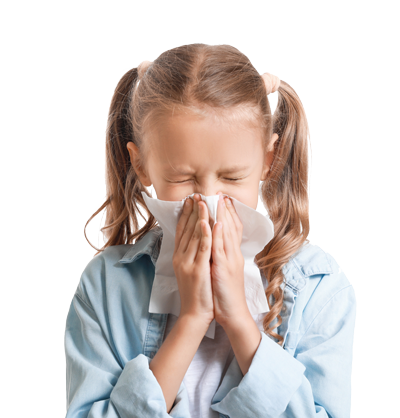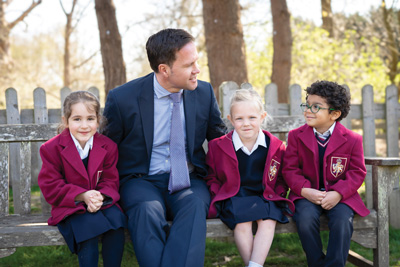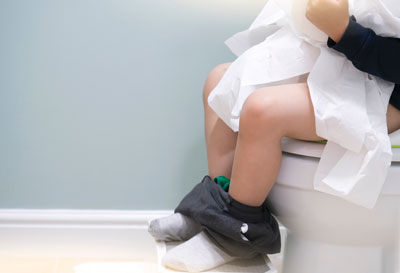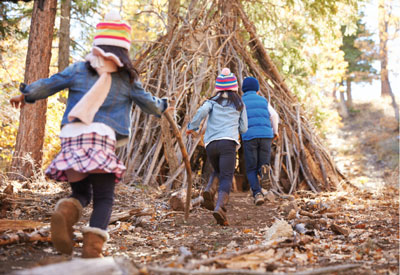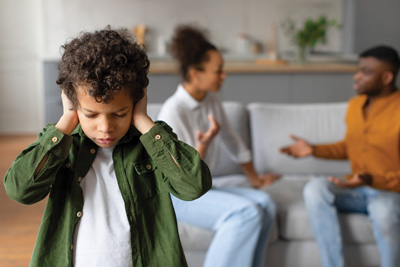
by Yulia Osudina
YO Mediation
Separation or divorce is a significant transition for any family. When children are involved, parents often experience heightened concern about how decisions relating to living arrangements, schooling, routines and communication will affect their children’s emotional wellbeing. Research and best practice consistently show that children cope best with separation when parents manage conflict constructively and keep children’s needs at the centre of all decision‑making.
Family mediation provides a confidential and structured environment in which parents are supported to reach practical, child‑focused solutions tailored to their family. Mediation encourages cooperation, respectful communication and problem-solving.
What is family mediation?
Family mediation is a facilitated process in which an impartial, trained mediator helps parents communicate more effectively, explore options and reach mutually acceptable agreements. Rather than focusing on blame or past conflict, mediation looks forward, helping parents plan for their children’s future in a way that minimises stress and disruption.
Mediation can address a wide range of issues, including financial matters and arrangements for children. In this article however, the focus is on child arrangements mediation. This can support parents in resolving disagreements about where their children live and spend time – which school they attend, term-time routines and holiday planning, special occasions such as Christmas and New Year’s, grandparents’ visits, religious upbringing and arrangements that take account of special educational needs (SEN), as well as many other aspects of family life.
A key principle of mediation is that parents remain in control of decisions affecting their children. The mediator does not take sides or impose outcomes, but supports both parents to focus on what will best support their children’s stability, security and emotional development.
A child‑focused approach to mediation
While separation ends an adult relationship, it does not end parenting. As such, mediation can help parents to shift from a couple‑focused mindset to a co‑parenting one.
A child‑focused mediation process helps parents to:
• Consider decisions from the child’s perspective rather than through parental conflict.
• Recognise how ongoing disputes can affect children emotionally and behaviourally.
• Develop arrangements that promote consistency, reassurance and strong relationships with both parents where it is safe to do so.
• Communicate in ways that reduce tension and model positive behaviour for children.
Mediators support parents to keep discussions centred on children’s day‑to‑day experiences, such as routines, schooling, holidays, communication and transitions between homes. This practical focus helps reduce emotional escalation and keeps conversations constructive.
When mediation is particularly helpful
Mediation can be especially effective:
• At an early stage of separation, before positions become entrenched.
• When parents wish to avoid the stress, cost and delay of court proceedings.
• Where communication has broken down but both parents remain committed to their children’s wellbeing.
• For families with young children who benefit from predictable routines and low conflict.
• In cases involving children with special educational needs or additional vulnerabilities, where careful planning and cooperation are essential.
Supporting children with Special Educational Needs (SEN)
For families with children who have special educational needs, separation can present additional challenges. These children may rely heavily on routine, consistency and coordinated support across home and school environments.
Mediation provides a structured space for parents to:
• Share information about their child’s needs, support plans and professional input.
• Discuss how routines, therapies and educational arrangements will be managed across two households.
• Agree on communication methods that ensure both parents remain informed
and involved.
• Reduce misunderstandings that can arise when stress and uncertainty are high.
A mediator with experience in SEN matters can help parents focus on practical, realistic arrangements that prioritise the child’s wellbeing while recognising each parent’s capacity and circumstances.
Child‑inclusive mediation
In some cases, and where appropriate, mediation can include the child’s voice. Child‑inclusive mediation is usually suitable for children aged around ten and over, depending on their maturity and circumstances. This approach allows children to speak privately with a specially trained professional, ensuring their views are heard without placing responsibility on them for decision‑making.
The purpose is not for children to choose outcomes, but to give parents insight into how their child is experiencing the separation. For younger children, mediation remains parent‑focused, with decisions guided by professional understanding of children’s developmental needs.
The benefits of early, child‑focused mediation
Engaging in mediation at an early stage can have lasting benefits for the whole family:
• Reduced conflict and improved communication between parents.
• Faster, more flexible resolutions than court‑based processes.
• Tailored arrangements that reflect the unique needs of each child.
• Greater emotional security for children through consistent, cooperative parenting.
• A stronger foundation for long‑term co‑parenting.
Preparing for mediation
Parents can help mediation be as effective as possible by:
• Approaching the process with a willingness to listen and reflect.
• Keeping the focus on their children’s needs rather than past grievances.
• Gathering relevant information, such as school reports or support plans.
• Being open to compromise in the interests of stability and reassurance for their children.
Family mediation, guided by child‑focused principles such as those set out by Resolution’s ‘Parenting Through Separation’ framework, offers parents a constructive way forward during an emotionally challenging time. By prioritising children’s needs, reducing conflict and encouraging cooperative co‑parenting, mediation supports families in creating arrangements that promote security, resilience and positive long‑term outcomes for children.
For parents seeking a calm, respectful and child‑centred approach to separation, mediation provides a valuable alternative to adversarial processes and helps lay the groundwork for healthy parenting relationships in the years ahead.
For further information on how Yulia Osudina at YO Mediation can help you in your own circumstances please visit www.yomediation.com or email yulia@yomediation.com

